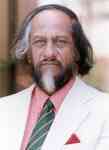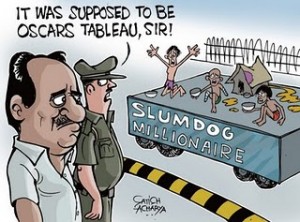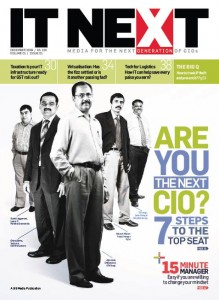- Be business savvy
Tag Archives: India
Interview: Dr RK Pachauri (IPCC)
“Is the climate change situation as dire as you make it sound?” Is invariably the first question that any interviewer puts to Dr. Rajendra Kumar Pachauri, chairman of the Intergovernmental Panel on Climate Change (IPCC) and the director general of The Energy and Resources Institute. Ever since 2007, when Pachauri came out with earth shattering commentary that our planet was moving rapidly towards an ecological disaster of gargantuan proportion, somewhat of an Eco-Armageddon and it was human activity that is responsible for the same; he has been hailed as a hero and reviled as a villain across the globe. Since, then Pachauri has been asked above question over and over again, and yet the environmental Nostradamus always answers the question calmly and lists down all the dangers that confront us in a solemn demeanor.
For western nations like the US that after years of releasing obnoxious pollutants in the atmosphere and wanting other nations like India and China to take a commitment first, Pachauri is a somewhat of a bogeyman. Nonetheless, he has taken a strong stance on what the world needs to do forestall the doom and how the developed countries should not merely shift the onus and blame to developing countries. In recognition of his efforts and those of IPCC, the Nobel Committee conferred on IPCC and Al Gore, the Nobel Peace Prize in 2007. In his acceptance speech on behalf of IPCC, Pachauri had invoked the Sanskrit adage, vasudev kutumbakam (the whole universe is one big family) and asked everyone to contribute to the fight against climate change.
Post Nobel, Pachauri turned into the most recognized face of climate change and he continues to invoke the same vasudev kutumbakam principle to ask all to join in the challenge. In a special discussion, he talks about the ways in which Indian corporate sector can play a significant role in battle, on CSS, nuclear energy and so many other things.
Whenever, we talk about climate change it is often from a macro perspective, namely what the governments can do on it. Do you think that at a micro level, say enterprises too have a certain amount of responsibility and can work towards a better world?
Indeed it is so. There is a whole range of things that companies and enterprises can do. The impacts of climate change are going to be very diverse, they are going to range from an increase in extreme climate events, to heat waves, drought, and also changes in precipitation pattern so the availability of natural resources like water is going to be definitely affected and it is going to impact on the working of the corporate sector. So companies need to start looking at how they need to adapt to these extreme events, for instance if there is an company that uses a large amount of water like a semiconductor fab; the water is not going to be available in the manner and to the magnitude they need in the future. So probably they need to think in terms of recycling of water, using processes that are less water intensive, etc. So these are adaptations measures that they can. And this will not only benefit the company but also go a long way in the fight against climate change.
What do you think about the eco-consciousness of the Indian corporate sector?
Well, it is growing, it is still not where it should be but I think the consciousness is growing. What is important is that there is desire to understand and to find out what they can do. But not all of them are not well informed on what the impact of climate changes are and how they should respond to it. I want to highlight the fact that the need to reduce the emission of green house gases (GHG) is also linked to energy supply because energy is going to be an issue that will affect countries, corporate entities, and even individual. The security of energy supply is certainly in question as far as the future is concerned. So to the extent that corporate sector can use energy more efficiently, perhaps to shift as much as possible to the use of renewable energy. There own security about the supply of energy will enhance. And while doing all that they will also be able to cut down on costs. They will have to carry out some due diligence, exactly define what they can do. The corporate sector in India needs to wake up to the challenge of climate change.
Right now, most of the green initiatives carried out by the corporate sector are clubbed under the CSR tag, what do you make of it?
You know, I think by and large a lot of corporate organizations treat CSR as a kind of a cosmetic effort. I don’t think that is the right spirit. CSR should be mainstream, after all if a company has to succeed it also has to ensure that the society succeeds as well. And hence, for that to happen companies need to start looking at some of these initiatives as part of their overall operating strategy, not something that you do external to the enterprise. Hence, it is essential to integrate the two.
has to ensure that the society succeeds as well. And hence, for that to happen companies need to start looking at some of these initiatives as part of their overall operating strategy, not something that you do external to the enterprise. Hence, it is essential to integrate the two.
Due to your association with TERI, you have been privy to a lot of information about the various sectors of Indian industry; what do you think about the eco-consciousness of the IT industry vis-à-vis the rest of the sectors?
Some of the IT companies are indeed getting conscious of the fact, but I am not sure whether they are doing too much about it. Even if you look at some of the buildings that they construct, they have not really paid any attention by and large to energy efficient design, reducing energy in a way to make it sustainable in terms of supply opportunity in the future. And I am not too sure whether most of them are looking at even at the hardware and the software that they use being focused on energy efficiency. So I still think that there is a long way to go and I am not singling out the IT industry, every industry and enterprise needs to gear up for the challenge. Continue reading
Interview: Jimmy Wales (Wikipedia)
‘Jimbo’ is how Jimmy Wales is quite wellknown within the cyber community and there is an interesting story as to how he got this nickname. Years back, when Jimbo was kick-starting the community project (predescessor of Wikipedia), he was looking for a user name or a nickname, since most of the permutations involving his first name i.e., Jimmy were unavailable, he decided to settle on Jimbo, the one nickname that was not. And it has stuck with him ever since.
Over the past few years, there have been quite a few occasions that I got to interact with Jimbo, but due to some odd karmic coincidence, I never got around interviewing him for Dataquest. Thus, when one such opportunity presented itself, I jumped on it. And Jimbo too was kind enough to spare around an hour for a tete-a-tete.
When I called him at his San Francisco home, Jimbo was busy playing some a game on the computer with his daughter and seemed a wee bit unhappy at the onset on being gleaned away from the fun-thing. But as the interview progressed, he sort of warmed up; talking about different aspects of Wikipedia and how the future might pan out for the world’s leading collaborative encyclopedia project. Here is the interview of the Wikipedia man, as it was published in Dataquest.
******
The Power of Collaboration
You was what the Time magazine chose as the Person of the Year for 2006. The choice underlined the emergence of interactive Web or what is more popularly known as Web 2.0; a universe where millions of users communicate and collaborate seamlessly. Of the three instances of Web 2.0 services that were cited, Wikipedia was one of them (the others being YouTube and MySpace). In the intervening years, Wikipedia has only grown in strength, today it is one of the 4th most visited websites in the globe. Every month close to 280 mn people look up Wikipedia for information or to edit the pages.
Jimmy Wales co-founded Wikipedia in January 2001, as an online encyclopedia that could be edited by anyone. Over the last eight odd years, Wales has become an icon for Web 2.0 and has been recognized at various forums as a thinker and an activist. In 2007 the World Economic Forum recognized him as one of the Young Global Leaders that are having a positive impact on the society at large, while numerous other lists have pegged him as one of the most influential thought leaders or scientists.
But, there is no dearth of detractors to Wikipedia as well, with numerous people pointing out flaws in its liberal editing model, or the fact that the information is not really authenticated. Wales has also been targeted time and again for his personal traits, be it the person he is dating or the page he is deleting. Nonetheless, he continues to be a vociferous mascot for Wikipedia, touring across the globe and spreading the message. In an interaction with Dataquest, he speaks about what makes Wikipedia tick and how not only individuals but also enterprises could use it as one of the information sources. Excerpts:
Recently, Wikipedia successfully raised some $6 mn through contribution for running its operations and you also made a very personal appeal in that regards. What really necessitated the personal appeal? Has the downturn had an impact on fund raising?
Fund raising is not something unusual as we do it every year, where in funds are raised for the following year. As we follow a non-profit root, we are dependent on charity from the normal public to run our affairs, so that is pretty usual for us. As far as the personal appeal goes, I make it every year, so that is not something different either.
To be honest, I did not see any specific instance of economic conditions affecting our fund raising. Our users across the globe understand that we need money to survive and hence they donate in whichever way possible. I am very grateful to all those who did, be it slowdown or not.
It has been some eight years since you launched Wikipedia, and it has grown immensely in these years. What is the road ahead for Wikipedia?
Though it has been eight years, I strongly feel that we are just at the beginning of community driven projects online, where thousands of new things evolve over time and we are going to see a lot more projects of this nature over the coming years. People across different fields are getting together to create things and this trend will only increase. So you just wait, there will be a lot more Wikipedia kind of projects in the years to come.
Wikipedia is renowned as an exhaustive source of information but is there a physical limit to the growth, ie, is it possible to get any and every information on Wikipedia?
Well, to start with, there are very different limits to what can go in Wikipedia. First and foremost lets remember that Wikipedia is an encyclopedia, which directly means that there are scores of things that Wikipedia is and is not. Also, we have a strong focus on good quality and that is not possible unless you have good references. Sadly good references are not in abundant quantity, so that puts a limit to what can be achieved or not. Continue reading
Schadenfreude Millionaire
It’s evening time at the posh Lincoln Plaza Cinema, in Broadway, New York an Amy Wilder is sitting perked up and looking with disbelief at the film running on the big screen ahead. Though, she has never really visited India, but has heard a lot about the country especially due to the job losses in the US. Like many else she believes that every white-collared IT worker that is retrenched in US is replaced by a brownie in some obscure city of India. Over the years, Amy, and many like her, have come to believe that India is no merely a land of elephants, snake charmers and the rope trick artists, but a potent threat to the workforce because of its laborious and educated workforce. The stereotype had steadily been effaced.
many else she believes that every white-collared IT worker that is retrenched in US is replaced by a brownie in some obscure city of India. Over the years, Amy, and many like her, have come to believe that India is no merely a land of elephants, snake charmers and the rope trick artists, but a potent threat to the workforce because of its laborious and educated workforce. The stereotype had steadily been effaced.
Yet, sitting in the Lincoln Cinema, she witnessed an image of India that she has often heard about but was not sure that it existed; an impoverished country wherein people were reduced to despondency, fighting, bickering, cheating, and killing each other. Thanks to the ‘Incredible India’ buses that flitted on the Broadway Street, her image of India as a third-world country had been replaced by that of an emergent and mystical land, the country of IT and that of the Taj Mahal. But Slumdog Millionaire got her thinking again
Seeing the two little orphans scampering across the cramped and filthy streets of Mumbai made her realize that India was not really a country that should be loathed, but rather pitied. In fact, on coming out of the theatre, Amy felt better about her existence, even though she was facing tough times in the face of job loses and defaults on mortgage payments, but at least it wasn’t as bad as in India, where small boys were blinded and made to beg on streets, or mobs of religious fanatics went about killing people just like that. Thank you lord for not making me an Indian, she heaved a sigh. Continue reading

